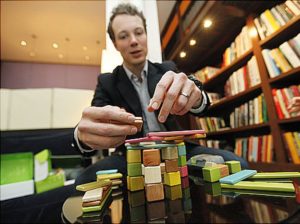
Do you like getting your vegetables shipped right to the door? Maybe you are a fan of how Amazon or other stores are shipping vegetables to homes around the nation. Are you passionate about helping the environment and limiting food waste? Well Abhi Ramesh is here to make that a reality. In 2018, Ramesh founded Misfits Market, becoming so successful he was featured on Forbe’s 30 under 30.

At many supermarkets and grocery stores around the United States, produce is wasted because it looks “weird” or due to overstock. These stores also give farmers guidelines for how produce should look, and if it does not line up, then the farmers toss it into a different pile, a pile of waste. Misfits Market fights the food waste problem by outsourcing produce that is extra or is a “misfit” veggie from local farmers. These misfit veggies are sometimes misshapen or discolored, however they taste just as good as a normal looking veggie from the grocery store.
Misfits is a subscription based service, you can choose how often you want veggies delivered and how much produce you want. Because farming is a seasonal occupation, at different times of the year, the boxes come with different veggies. There is a large variety of fruits and veggies that Misfits sends with each box.

Customers can put suggestions in for what they want or do not want, but for the most part, receiving the boxes are a fun mystery. With Misfits, my family has been able to try a lot of new fruits and veggies I had never heard of before. Some are great, and others are not. Misfits also provides some recipes for how to cook some of the more interesting and less common veggies.
Ramesh took a prevalent problem and made a great product. He identified the problem (food waste), and who the target customers were, and then created a service that provides vegetables at the click of a button.
https://www.misfitsmarket.com/

 She did not stop innovating at the sock-pocket technology, but has also innovated her unique Wise Pocket design into leggings to solve the original problem that her cousin faced.
She did not stop innovating at the sock-pocket technology, but has also innovated her unique Wise Pocket design into leggings to solve the original problem that her cousin faced.




